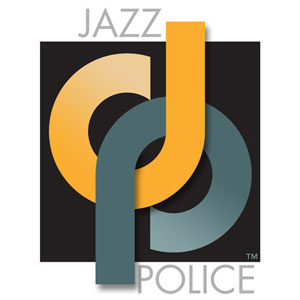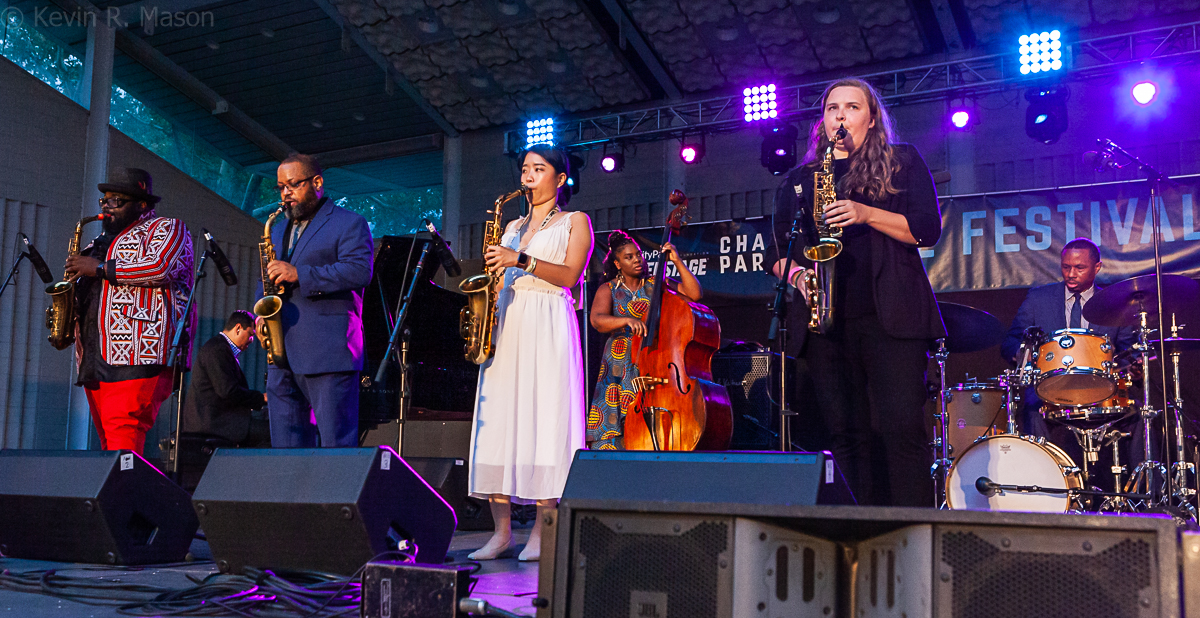
With the ongoing pandemic, things are still quite uncertain in the world. Yet somehow, despite everything, throughout 2021, in both live virtual and in-person events, jazz still prevailed. It was a good thing too, since music is a true balm for the human spirit. From August 23 to 29, the 28th annual Charlie Parker Jazz Festival took place live in New York City. This was a celebration of legendary saxophonist Charlie “Bird” Parker’s 100th birthday. The actual 100th anniversary of Parker’s birthday was in 2020, but the shutdowns due to Covid-19 caused that year’s Festival to be cancelled. So, the 2021 festivities were referred to as “Charlie Parker’s 100 + 1 Birthday.”
The events of the week included: A Bird with Strings Conversation: Donald Harrison and Amadi Azikiwe, Hosted by Ron Scott; the screening of the documentary film Mary Lou Williams, The Lady Who Swings the Band; and Listening Party: Henry Threadgill, Jaleel Shaw, Godwin Louis, and Caroline Davis. All the festivities were free, due to the great sponsorship from Title Sponsor Capital One Bank, New York City Parks Foundation, SummerStage, WBGO Radio, Con Edison, Art Works, New York City Jazz Record, Bloomberg Philanthropies, New York Council for the Arts, and Jazzmobile.
Friday, August 27
Bird at 100: Featuring Gary Bartz, Vincent Herring, Bobby Watson, Dave Kikoski, Yasushi Nakamura, and Carl Allen / The Antonio Hart Quartet
The Antonio Hart Quartet
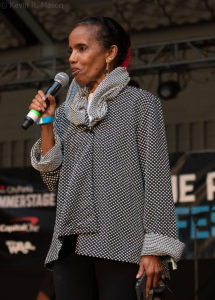
On Friday, August 27, there was a rainstorm about an hour before the concert, but fortunately, the rain stopped just before the Bird at 100 concert began at Harlem’s Marcus Garvey Park. Although the earlier rain kept some people away, there was still a good turnout. Robin Bell-Stevens, Director/Executive Producer of Jazzmobile, welcomed the crowd, and introduced the first act of the night.
The Antonio Hart Quartet got things off to an exciting start. Saxophonist Antonio Hart shouted to the crowd, “How you doing, New York? Live music, outside!” Hart was joined by Miki Yamanaka on piano, Alex Ayala on bass, and Vince Ector on drums. The quartet started with a beautifully melodic song that wooed the audience with its delicacy. Next came a swinging rendition of “Speak Low” that featured a great bass solo by Alex Ayala.
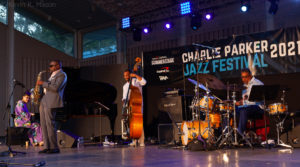
The group followed up with a sultry ballad, Dr. Billy Taylor’s composition, “Theodora,” that was highlighted by fine saxophone phrasing by Hart. The musicians continued with “Down and Out,” which included an excellent extensive piano solo from Yamanaka. Each of the musicians really showed off their chops, with Ector pushing the pace throughout on this bebop number. Before closing, knowing that Gary Bartz was playing next, Hart spoke of their common Baltimore, Maryland roots, and how he was influenced by Bartz’s playing. He would sneak out of the house to hear Bartz at a club called The Closet Inn, bringing his sax, for more than a year, hoping to be asked to play. Bartz never asked him to come up to the stage, and years later, Hart reminded Bartz of that time and asked him, “Why?” Bartz said, “Because you were supposed to listen.” The band ended their set with some audience participation on a bluesy improvisation. It was a wonderful beginning to the evening.
Gary Bartz, Vincent Herring, Bobby Watson, Dave Kikoski, Yasushi Nakamura, and Carl Allen
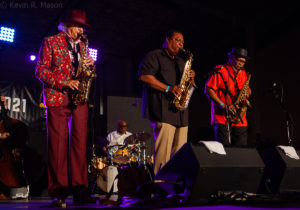
Saxophonist Gary Bartz was joined by pianist Dave Kikoski, drummer Carl Allen, bassist Yasushi Nakamura, and fellow saxophonists Vincent Herring and Bobby Watson. The list of all the musical icons these seasoned musicians have performed with is quite long and distinguished. This powerhouse group started with a dynamic song where the musicians played with intensity and strength, and there was an exciting section that involved dueling alto saxophones with Gary, Vincent, and Bobby. Next came “Over the Rainbow” featuring Bobby Watson’s sweet phrasing, and it was a sentimental treat. Charlie Parker’s composition “Ko-Ko” was based on the classic “Cherokee,” and showcased Gary Bartz’s excellent sax skills front and center. The set finished with a song written by the late, great Jackie McLean titled “Bird Lives.” It was a joyful, exuberant number with an abundance of outstanding solos. Herring’s improvisation made a clear statement and was truly notable on this piece. This superb show received effusive appreciation from the audience and closed the evening in high style.
Saturday, August 28
Charlie Parker with Strings: The Donald Harrison Quartet and the Harlem Symphony Orchestra / Shenel Johns / Abdias Armenteros and The New Jazz Underground
Abdias Armenteros and The New Jazz Underground
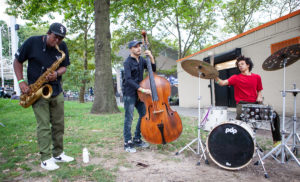
On both Saturday, August 28 and Sunday, August 29, before the concerts began at the main stage, Abdias Armenteros and The New Jazz Underground performed for an hour, outside the entrance of the Richard Rodgers Amphitheater at Marcus Garvey Park. The group was presented by The National Jazz Museum in Harlem. Tenor saxophonist Abdias Armenteros hails from Florida, and he is a recent graduate of the Julliard School. He was joined by bassist Sebastian Rios and drummer Miguel Russell, who subbed for T.J. Reddick. These artists performed Charlie Parker’s “Chi-Chi,” and the classic standard “You’d Be So Easy To Love.” They continued with Sebastian Rios’ captivating composition, “Pseudo Latin Vibe.” It was a swing dancer’s delight, and it gave each musician a chance to explore the rhythm! Dizzy Gillespie’s energetic Latin/bebop “Con Alma” came next and was followed by Sonny Rollins’ “Freedom Suite.” Then the group played a plaintive snippet of Thelonious Monk’s “Round Midnight.” They finished their set with Sebastian Rios’ original song “Same Thing” that had each artist enjoying their well-deserved moment in the spotlight. Abdias Armenteros and The New Jazz Underground were a great warm up for the main stage acts, and for such a young group of instrumentalists, they were surprisingly accomplished and ready to take their show on the road. It won’t be a shock if they are on the main stage very soon!
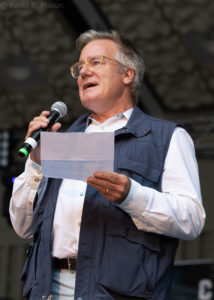
On the main stage, festival founder Sam Turvey spoke of the substantial financial support received from late Rolling Stones drummer Charlie Watts, especially during the Festival’s first ten years. Watts was a big jazz fan, he especially loved Charlie Parker, and that adulation included dreaming about being Parker’s drummer as a teen. London’s Beat Publications published Watts’ tribute book of illustrations and poetry, Ode To A High Flying Bird in 1965, which was later included in a box set with the album From One Charlie in 1991 on UFO Records. Turvey said, “I can’t really speak for Charlie Watts, but I’m certain that he would be astounded and pleased to know that the historic “Bird with Strings” would be presented in a free concert in New York City in the last year of his life. I think he would find that very fitting…he sure deserves some credit for keeping this thing alive. Now into its almost 40th year, [Festival presenter] SummerStage will not be stopped by forest fire, hurricane, COVID, or whatever else is thrown at them. Bird lives because of all of you, our wonderful audience, and people like the musicians performing this weekend, but Bird also lives, in part, because of people like Charlie Watts.”
Shenel Johns
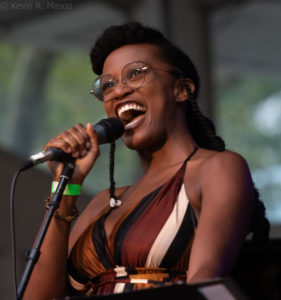
WBGO’s Sheila Anderson greeted the packed amphitheater and introduced the opening act at the main stage, vocalist Shenel Johns. Shenel was supported by pianist Zaccai Curtis, bassist Endea Owens, dancer Michela Marino Lerman, and drummer Chris Beck. Johns started her set with a soulful Maze classic cut “Golden Time of Day,” from their 1978 album of the same name on Capitol Records. Curtis complemented Johns’ vocals with a glorious piano solo, capping a perfect opening. Johns then introduced Lerman to the audience, who used her tap-dancing skills to accompany the band’s up-tempo rendition of Abbey Lincoln’s “Throw It Away,” from Lincoln’s Painted Lady album, from a 1987 Paris session, released by ITM Records in Germany. Next, Owens’ beautiful bass intro to Shenel’s expressive “Try a Little Tenderness” was enchanting. The group performed a stellar “Nature Boy,” with Owens adding another soul-stirring bass solo. Johns delivered a delightful a cappella interpretation of “Mr. Tambourine Man,” punctuated by Lerman’s tap-dancing accents, which brought the audience to their feet. Johns got some fun participation from the crowd on the Beres Hammond reggae gem “Black Beauty.” This marvelous set ended with a rousing version of Nina Simone’s “A New World Coming.” Shenel Johns showed herself to be a versatile chanteuse and storyteller across various musical genres.
Charlie Parker with Strings: The Donald Harrison Quartet and the Harlem Symphony Orchestra
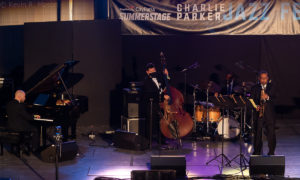
For the second, much-anticipated show of the evening, WBGO’s Sheila Anderson took a minute to remember “some of our friends and colleagues who didn’t survive the pandemic.” Then she introduced The Donald Harrison Quartet. Saxophonist Donald Harrison is in the 2022 NEA Jazz Masters class that includes honorees bassist Stanley Clarke, drummer Billy Hart, and songstress Cassandra Wilson. Harrison is also the recipient of the 2022 A.B. Spellman NEA Jazz Masters Fellowship for Jazz Advocacy, an award given since 2006 to an individual who has made significant contributions in the knowledge, appreciation, and advancement of jazz as an American art form. Harrison has been a mentor to numerous young jazz players, including Christian Scott aTunde Adjuah, Trombone Shorty, Jon Batiste, and many others who are blazing trails of their own. Giving as much as he’s received from his many collaborations, in various genres over the decades, Harrison developed his “nouveau swing” style of playing, a phrase he borrowed from a Paris fan’s description of his sound. His quartet included bassist Nori Naraoka, pianist Dan Kaufman, and fellow New Orleans native drummer Joe Dyson.
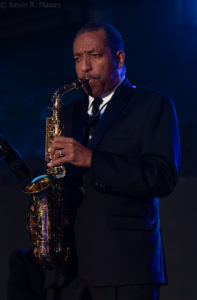
Beginning his set, Harrison said, “Good evening, and welcome to the Charlie Parker Jazz Festival. We’re going to be playing some of his music and some of mine as well. We’re going to start with a song they played a lot in the bebop era. It’s called “Now’s The Time.” The band served up an excellent swinging version of the familiar tune. The next song was Dizzy Gillespie’s, “Groovin’ High,” a bebop mainstay that became a jazz standard. Dizzy called it a medium tempo tune that was on his classic Shaw ‘Nuff album from recording sessions in 1945 and 1946. Harrison said his quartet would play it with the original beautiful breaks from Gillespie and Parker’s collaboration in Dizzy’s sextet. This was a jumping tune from the first note, and everyone in the group greatly contributed to the conversation to keep the cohesive pace going. Harrison’s smooth alto improvisations through the twists and turns of this complex piece would have made Gillespie and Parker smile. Donald wanted to write a song that sounded like Charlie Parker, reminiscent of old bebop and played his finished composition first for his friends. It worked, because they thought it was an old bebop gem. The song is called “One For Bird,” and can be found on Harrison’s Paradise Found album released in 2003 on FOMP Records.
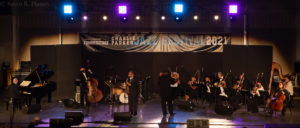
Harrison then introduced The Harlem Symphony Orchestra under the direction of Amadi Azikiwe for the “Charlie Parker with Strings” section of the concert. Two Charlie Parker with Strings albums were released. The first was in 1950 on Mercury Records, and in 1995 Verve reissued a compilation album with bonus tracks. At this concert, the union of quartet and strings was elegant, moving, with the feel of big band ballroom magic. It was remarkable that this collaboration only rehearsed the selections once. Things began by Azikiwe saying, “It’s been a pleasure and honor to work with Donald Harrison and his wonderful group. We know that you will enjoy the program, and we will get started now.” The atmosphere changed from nightclub to Carnegie Hall with the orchestra’s accompaniment. The set began with “East of the Sun (and West of the Moon)” and then moved seamlessly into “Easy to Love.” Harrison’s alto improvisations were more subtle than with his quartet, but eloquently weaved throughout the melodies. A silky smooth “Everything Happens To Me” segued into “I’m in the Mood for Love,” which included a gorgeous piano solo from Kaufman. A beautiful harp intro began the jazz standard “Just Friends.” The familiar David Raksin classic “Laura” was the next song, which included excellent interplay between Harrison’s alto improvisations and the orchestra’s trombonist’s phrases and oboist’s riffs and coda.
A superb “Repetition” showcased the brilliance of drummer Joe Dyson. The swinging “Rocker” was next, and it was followed by a ballad Harrison wrote called “Sincerely Yours,” from his 1997 Nouveau Swing CD. The orchestra, band, and Harrison’s exquisite improvisations were stunning on this haunting tune, getting the biggest ovation of the night. After the song, Harrison addressed the crowd and explained that he wrote the last piece they loved so much. He then praised the orchestra for doing such a great job, especially considering they had just learned his arrangement. The iconic “Summertime” was the perfect song for a great alto saxophonist with strings. For an encore, the ensemble played a lively “What Is This Thing Called Love.” Harrison ended this great set by saying, “We love Charlie Parker! We love Harlem! Thank you, Charlie Parker Jazz Festival!”
Sunday, August 29
Willie Jones III – A Charlie Parker Centennial Celebration Featuring Sarah Hanahan, Gowin Louis, Justin Robinson, Erena Terakubo with Donald Vega and Endea Owens / Samara Joy, in Association with Jazz at Lincoln Center
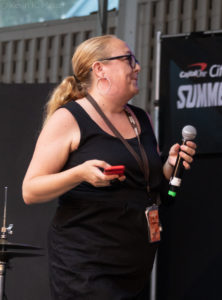
On Sunday, August 29, once again, Artistic Director of SummerStage Erika Elliott thanked the sponsors and talked about the items that were available at the merchandising tent. She also spoke about the Lenape Indian Tribe, saying, “We acknowledge that we are currently standing on native land, that’s been stewarded and cared for by generations of Lenape people. In the spirit of honoring our past…we offer our recognition and gratitude to all indigenous people.”
Then, she brought on WBGO’s Brian Delph, who introduced the night’s event. Delph said, “Wow! How important it is that all of us are here together, that we can celebrate this music…together. Thank you, thank you all for coming out. Even socially distanced, you look great! It’s my pleasure and my honor to be here.”
Samara Joy
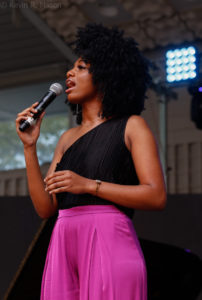
Singer Samara Joy was the first performer on the main stage on the final day of the festival, and she was backed by pianist Sullivan Fortner, bassist David Wong, and drummer Kenny Washington. The set began with a swinging “I’m Gonna Lock My Heart (And Throw Away the Key).” Then Samara said, “It’s such an honor and a pleasure to be here for the first time.” She added, “It’s good to be performing live, in real clothes!” The group followed with a sultry “Mean to Me” where Joy showed off the excellent singing that won her the Sarah Vaughan International Jazz Vocal Competition in 2019, and the song displayed the improvisational talents from each of her cohorts. Next came “Lover Man” with a superb prelude that is rarely heard. It was an intricately mournful lament that the band played with real style. In fact, so impressive was this rendition that there were spontaneous calls from the audience, “Yes” and “Sing, Girl!” The show continued with “Nothing Ever Changes My Love For You” that had a jaunty, syncopated beat, and Joy encouraged the crowd to sing along at the end. Samara said, “I knew we had some singers here today.” She got a laugh when she added, “You’ve had 17 months to practice!”
Joy studied online with iconic trumpeter/composer/educator Jon Faddis this year, and he encouraged her to write “Nostalgia” with lyrics that she adapted from a Fats Navarro song. Although Navarro only lived to be 26 years old, Samara imagined him living for many more years when she wrote the lyrics to this song. The group also did a sparkling “Sunday” and Joy said, “Believe it or not, this is my first time playing with this group, and I’m honored to be here.” “The closing song of the set was “Funky Blues,” and it really lived up to its name! It was down and dirty in the best possible way. After a huge ovation from the audience, Samara and the band played an encore, a delightful version of “I Didn’t Know What Time It Was,” and it was a wonderful end to this portion of the evening.
Willie Jones III – A Charlie Parker Centennial Celebration Featuring Sarah Hanahan, Godwin Louis, Justin Robinson, Erena Terakubo with Donald Vega and Endea Owens
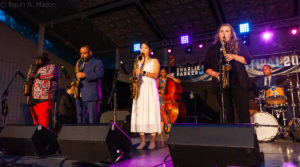
For the final concert of the Festival, Brian Delph introduced Endea Owens on bass, Donald Vega on piano, saxophonists Justin Robinson, Erena Terakubo, Sarah Hanahan, and Godwin Louis, and leading the band, Willie Jones III on drums. This was a Charlie Parker tribute lineup featuring the four alto saxophonists, with each one adding their own unique style to the proceedings. The set began with Endea Owens’ inspiring bass solo intro to the jumping Lester Young and Count Basie jazz standard “Lester Leaps In.” It was the perfect improvisation vehicle, allowing each band member’s virtuosity to shine brightly, and fully engaged the encouraging audience during their extensive spotlight moments. It segued beautifully into the classic “Star Eyes” which allowed the harmonic fluency and inventiveness of each saxophonist to clearly show. Vega also added some impressive melodic voicing of his own. Justin Robinson then aptly handled the Parker gem “Segment.” The set continued with a fast-paced “Donna Lee” that featured Endea and Willie tearing it up on the bass and drums, with Vega matching them note for note. Then, Erena Terakubo joined Sarah Hanahan on the Jackie McLean composition that was dedicated to Charlie Parker, “Bird Lives.” The two sax players pushed the limits of their abilities on this incendiary number, both as a duet and on their individual solos, and Vega added an excellent piano solo, with fine support from his fellow artists.
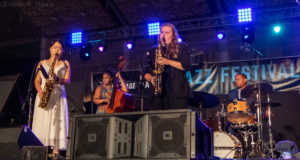
All four of the alto saxophonists were front and center to perform a romantic medley that included Erena playing a smooth “Parker’s Mood,” a romantic “Embraceable You” performed by Justin, Sarah doing a sensuous “Lover Man,” and Godwin electrifying the crowd on “I Can’t Get Started.” The saxophonists did a stellar job on the medley, expertly interplaying with each other, and blowing the audience away! Willie Jones III addressed the crowd, introducing the musicians one more time and saying, “We’d like to thank you guys so much for coming out. I’d like to personally thank SummerStage, Jazz at Lincoln Center, everyone at the Charlie Parker Festival, and Sheila Anderson…This is our first time playing here.” The closing song was a rousing rendition of “Cherokee,” and it was a fitting end to a festival named for the legendary Charlie “Bird” Parker on the 101st anniversary of his birth! In these uncertain times, it was another opportunity for live music, which is always welcome, even with the need for safety precautions. The Charlie Parker Jazz Festival was a shining example of how jazz is enduring, even in the face of the challenges we are all facing.
For more information, go to www.cityparksfoundation.org/charlieparker.
